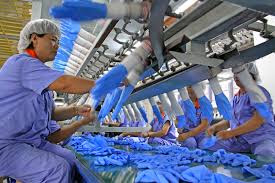Friday, April 3, 2020
APEC Cooperation and Public-Private Partnership Amidst COVID-19 Pandemic
3 April 2020 – The APEC Business Advisory Council (ABAC) has called for APEC leadership and cooperation to fight the challenges to health and economies posed by the COVID-19 pandemic.
“Saving lives is obviously what matters most right now,” said ABAC Chair Dato Rohana Tan Sri Mahmood. “That demands collaboration across the region on the knowledge and the tools we need to combat the health impacts and mitigate the most severe consequences in the short term, she added.
The Council has written to APEC Trade and Foreign Ministers to ensure free flow of essential goods and tools critical to address the health emergency, including medical equipment, medicines and basic items such as disinfectants and personal protective equipment. Specifically, economies should facilitate trade by simplifying and expediting border procedures, and relaxing the rules for ease of movement of essential workers and medical professionals across borders where they are most needed.
Dato Rohana however, stressed the need to lay the groundwork for rapid economic recovery when the worst of the impact of COVID-19 begins to wane. “This is rapidly becoming a financial and economic crisis too,” she added. “The impact on workers, businesses and supply chains are already severe. We are especially concerned about small business, the self-employed and those in the informal economy, who are ill-equipped to withstand these impacts,” said the ABAC Chair.
ABAC also called on APEC economies to make the fullest possible use of digital technologies and connectivity, and work together effectively across economies and enable a level of economic activity to continue. “There is no precedent for the global shutdown we are now experiencing and no guidebook to assist us as we recover,” said Dato Rohana, “so it is critical that APEC economies work collaboratively to address the immediate challenges and to plan for reopening of our borders as soon as possible.”
Meanwhile, the Philippines expeditiously passed the “Bayanihan to Heal as One Act,” laying the government’s policy and emergency measures to address the COVID-19 situation in the Philippines. This include allocating budget and resources to facilitate testing by public and private health institutions, directing establishments to serve as quarantine areas, relief distribution centers, and providing expanded subsidies to low-income households.
ABAC Philippines welcomes the collective response from the government and other stakeholders in addressing the COVID-19 situation in the country. Member Guillermo Luz notes how the private sector responds and complements the current COVID-19 measures. Companies have adopted work-from-home and other flexible work arrangements, and provided financial and relief assistance to their workers. Utility companies and banking institutions have offered reprieve from late payments while ensuring continued services to their clients. Malls have likewise given rental holiday for their tenants during the mandatory closure period.
“While COVID-19 has critically disrupted business operations across the country, this situation has shown that Philippine businesses are ready to step up and find ways to mitigate the impact especially for entrepreneurs and ordinary workers,” Mr. Luz said. He cited the joint initiative of the private-sector led Philippine Disaster Resilience Foundation (PDRF) and religious organization Caritas Manila called Project Ugnayan, which provides unconditional emergency cash transfers to the poorest of the poor in Greater Metro Manila area. According to Mr. Luz who is also PDRF’s chief resilience officer, “In times of crisis, Filipinos always rise to the occasion to help fellow Filipinos (and non-Filipinos) in need.” Ugnayan aims to feed 1 to 1.5 million families with P1,000 per family in the form of gift certificates or grocery vouchers which are redeemable in supermarkets.
For ABAC Philippines Chair Tomas Alcantara, “It is important to have an efficient and concerted strategy by the public and private sector to address urgent health emergencies, on the one hand, and immediate and longer-term social and economic recovery, on the other.” “Our preparations for the worst includes being able to quickly bounce back from the COVID-19 situation, so we can nurture a healthy Filipino population and rebuild a competitive Philippines again,” he added.
Labels:
#ABAC,
#APEC,
#BoyRaket,
#Cleene,
#coronavirus,
#DTI,
#ECQ,
#foodsupply,
#Greenhills,
#JAO,
#lockdown,
#Manila,
#metromanila,
#NFA,
#PDRF,
#philippines,
#sanitizers,
#Supply,
#virus,
COVID-19
Subscribe to:
Post Comments (Atom)


No comments:
Post a Comment